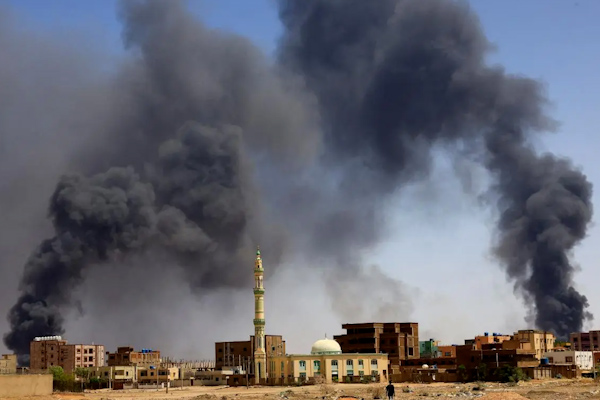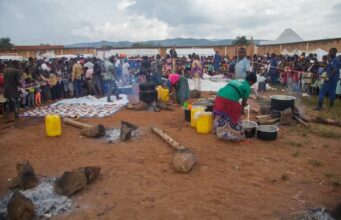A little over three months since fighting broke out in Sudan’s capital Khartoum between the army and the paramilitary Rapid Support Force (RSF), successive peace initiatives have run aground given the seeming determination on both sides that a military solution is theirs to win.
The ground situation is grim: reports say the army controls most of eastern and central Sudan while fighting hard to retain its bases in Khartoum. High level diplomatic sources in Delhi said “Since the RSF is sitting in Khartoum, the army is finding it difficult to drive them out.”
The RSF under Gen. Mohamed Dagalo appear to have made major gains in the capital where its fighters are accused of murder, rape and other atrocities.
“The RSF controls the gold mines in Darfur and has no problem funding its 1,20,000-armed men. The Sudanese army under Gen. Abdel Fattah al-Burhan has 200,000 men but lacks mobility and is over-stretched,” the sources said.
The army is battling to prevent the RSF from overrunning El-Obeid, capital of the North Kordofan state. The latter has overrun most of Darfur province in the south-west, burned down the palace of the sultan (the customary ruler) and also killed the governor.
Adding to the pressure on the army is the decade old insurgency in the South Kordofan state by the Sudan People’s Liberation Movement-North. The insurgents are now reportedly moving to capture the state capital Kadugli.
Many government ministries and departments have moved out of Khartoum to Port Sudan on the Red Sea. The foreign ministry has been operating from there for some time.
A UN-led peace mission appears unlikely given how divided the Security Council is. Russia and China are bound to veto any move by the US and its allies to intervene in Sudan.
The sources also noted that “Foreign intervention is difficult since any foreign force faces huge risks.”
Ceasefires mediated by various groups have not held although the army chief Gen. al-Burhan, appears inclined to a peace initiative being mediated by neighbouring states. But Gen. Dagalo should agree and until now there’s no such indication.
Both generals know each other well and had served under the regime of President Omar Hassan al-Bashir, whom they deposed in a coup four years ago. Ironically, Gen. Dagalo was brought to Khartoum in 2017 by the former president and the RSF was his personal security guard. It was also meant to counter any coup attempt by the army. Clearly, the president miscalculated and badly.
Gen Burhan and Dagalo disagreed over how to integrate the RSF with the army. Burhan wanted it done in two years, Dagalo wanted 10 years. It was also not clear what role Dagalo would play once the integration was completed.
A report by the Carnegie Endowment for International Peace in May, warned of the danger of Sudan disintegrating. South Sudan broke away in 2011 after a protracted civil war. Darfur has witnessed successive civil wars and mass expulsion of its non-Muslim and African population by Arab militias such as the Janjaweed. Incidentally, the RSF has its origins in the Janjaweed.
The report notes that while tensions between Khartoum and the country’s southern and western peripheries are of long standing, this is the first time the capital and the ruling elite are paying the price for not resolving conflicts peacefully.
















